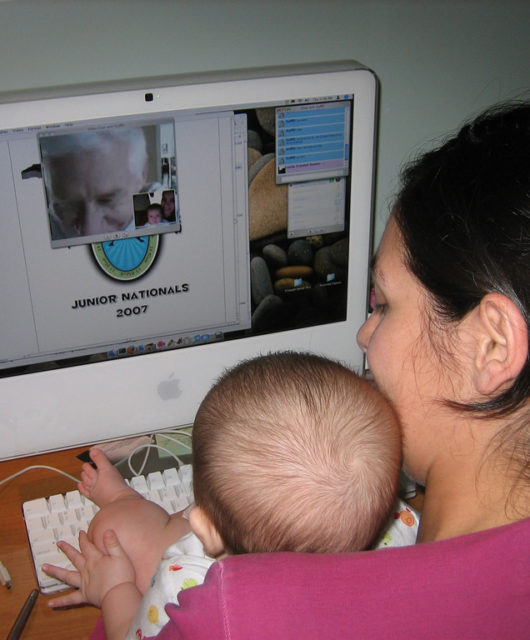Does Technology Really Hinder our Social Lives?

Source: Jacob Ufkes
Modern technology encompasses a significant part of our lives; we use technology to communicate, to entertain ourselves, and even to store personal data. There are innumerable uses of technology, and that is partly the reason why we have become reliant on modern devices. Technology eliminates the need to physically travel anywhere in order to fulfill most tasks. However, it is this very ability that people refer to when making the argument that technology is taking away from our social relationships.
The most prominent example that is often labelled as the main perpetrator of making us less social is the internet. The internet supposedly makes our relationships more superficial, especially because of social networking sites. Currently, there are 2.34 billion social network users in the world; in 2013, 45% of adults from the US admitted to accessing Facebook several times a day.
Despite the frequency of online communication, some argue it lacks in quality. This is because when communicating online, there are other distractions that can interfere during a conversation. Whilst messaging a friend on Facebook, you can get another notification that takes your attention away from the conversation. These distractions result in fragmented conversations that limit the extent to which a quality conversation can be achieved.

Source: William Iven
Although this may be true, it is also important to acknowledge that there are different interpretations for what defines ‘real’ communication. A conversation does not have to occur physically for it to be ‘real’ because it is not the physical presence of two or more people that results in a ‘real’ conversation, but rather, the content of the conversation. It is still possible to have deep and meaningful conversations via online platforms, especially if those platforms cater to a person’s niche interests.
Furthermore, distractions emerge both online and in physical conversations, and the notion that online distractions diminish the value of conversations more is debatable. Similarly to how a notification may interrupt an online conversation, a physical conversation can be interrupted by outdoor factors, such as another person appearing and intruding upon the conversation. After all, humans have been carrying out conversations in letters and that certainly did not involve their physical presence.
Another opinion we frequently hear is that information technology results in the increasing neglect of real-life relationships, by replacing the need for real-life interaction. This not only occurs because people opt to partake in online conversations rather than in person, but also because there are various activities that people can become involved in online, that consume the time we could have spent seeking real-life social interaction.
The expansiveness of the internet means that many hobbies can now be enjoyed individually online, such as playing games. However, because these hobbies are easily accessible through online platforms, there is no need to physically travel to an environment where these activities can be enjoyed with other people, because they can be enjoyed in the comfort of one’s own room.
The first problem with this claim is that it, once again, it favours real-life conversation over online interaction, even though there is no way to objectively establish that one is more meaningful than the other. The second problem is that it assumes that social interaction cannot be achieved when engaging in online activities. Whilst engaging in online hobbies, people can still chat to individuals from around the world. In fact, some people use gaming platforms to engage in social interaction, as they can be sure they have at least that game in common with other members of that community. Online gaming, for example, is an activity that is becoming more popular because of its convenience. In 2010, the total revenues from online casinos were valued at around $29.3 billion. Betting at online casinos does not require you to leave your home, however, this does not limit your sociability, but rather, offers more opportunity to tailor your entertainment to your mood and needs. For instance, someone looking for more solitary entertainment at Betway can opt for games such as slots, in which it’s just them and the slot machine. On the other hand, if they prefer to interact with other players, they can navigate towards more social casino games on the same site, like blackjack or poker.

“Las Vegas, The Freemont Street Experienc” (CC BY-SA 2.0) by ShardsOfBlue
Overall, the assumption that virtual sociability is indirectly proportional to real-life sociability is simply that: an assumption. Social networking sites provide greater opportunities for people to increase their social network, which increases the number of people available for building physical relationships with in the future. In addition, sites that enable people to enjoy their hobbies online can also be used to interact with other players who share similar interests. The social nature of technology is dependent upon how the individual chooses to use it. So let’s not lament but make the best of what we have.









